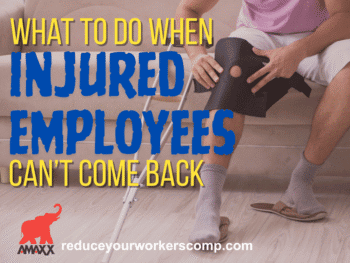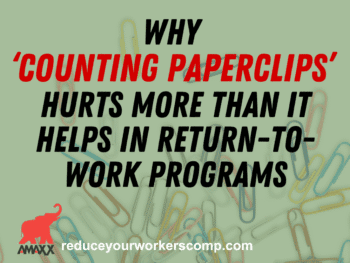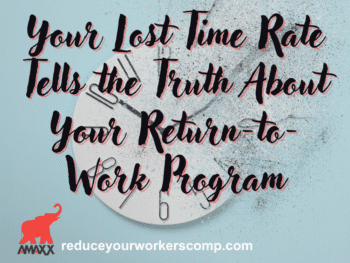How Would You Decide: Florida Worker’s Refusal of “Sheltered Employment” Was Not Reasonable
Here’s What Happened:
Claimant, a commercial housekeeper, suffered a compensable injury to her right (dominant) shoulder, underwent surgery, and was placed on no-work status for approximately one week. Subsequently, claimant’s authorized orthopedist returned claimant to work with significant restrictions relative and recommended three weeks of physical therapy.
The employer, as part of its return-to-work program, offered claimant a light-duty job — dusting with only the left hand. Claimant advised the employer that she would not return to work until she received the recommended physical therapy, that she was still in pain, and that she could not perform the job because it was too difficult. Thereafter the employer terminated claimant’s employment, citing claimant’s failure to show up for work or call. Claimant underwent physical therapy and eventually found other employment.
Click Link to Access Free PDF Download
“13 Research Studies to Prove Value of Return-to-Work Program & Gain Stakeholder Buy-In”
The JCC found the modified position was a legitimate offer of suitable employment made pursuant to the employer’s return-to-work program and was not “sheltered employment.” Based on these findings, the JCC denied all requested temporary partial disability benefits due to Claimant’s unjustified refusal of suitable employment. As grounds for reversal, claimant argued the one-arm duster job was “sheltered employment,” because it was light of effort and responsibility and laden with rest and comfort and thus, benefits should have been awarded.
Here’s What The Court Decided:
In Moore v. Servicemaster Commer. Servs., 2009 Fla. App. LEXIS 15556 (Oct. 14, 2009), the First District Court of Appeal of Florida disagreed with Claimant’s argument. The court first indicated it was inconsistent for Claimant to contend, on the one hand, that the job was laden with rest and comfort and, on the other, to argue that it was too difficult to perform.
The appellate court acknowledged that under appropriate circumstances, such as when an employer had created a job merely as a litigation tactic, such a job might not be considered “gainful employment” that would defeat a PTD claim. Here the situation appeared to be different, however. The court indicated that claimant’s concept of “sheltered employment” was antithetical to the intent of the legislature that the Workers’ Compensation Law should be interpreted to facilitate the worker’s return to gainful reemployment at a reasonable cost to the employer. Her sheltered employment concept was also at odds with the affirmative defense provided for in § 440.15(6), Fla. Stat.
The court stated that to the extent that a temporary offer of employment was perceived to be the result of “gamesmanship on the part of the employer,” § 440.15(6) allowed a JCC to excuse an injured worker from accepting such an offer. There was no reason, however, to resort to the common-law concept of “sheltered employment” in such situations. The court concluded that because the JCC failed to make any findings with regard to Claimant’s entitlement to TPD benefits after Claimant’s refusal of employment ceased, and before she returned to work, the decision was reversed.
FREE DOWNLOAD: “13 Research Studies to Prove Value of Return-to-Work Program & Gain Stakeholder Buy-In”
On remand, the JCC should determine whether Claimant proved, based on the evidence presented, entitlement to TPD benefits in accordance with the standards set forth in section 440.15(4), Fla. Stat. (2006).
See generally Larson’s Workers’ Compensation Law, § 81.06.
Tom Robinson, J.D. is the primary upkeep writer for Larson’s Workers’ Compensation Law (LexisNexis) and Larson’s Workers’ Compensation, Desk Edition (LexisNexis). He is a contributing writer for California Compensation Cases (LexisNexis) and Benefits Review Board – Longshore Reporter(LexisNexis), and is a contributing author to New York Workers’ Compensation Handbook(LexisNexis). Robinson is an authority in the area of workers’ compensation and we are happy to have him as a Guest Contributor to Workers’ Comp Kit Blog. Tom can be reached at: compwriter@gmail.com.
http://law.lexisnexis.com/practiceareas/Workers-Compensation
By: Private investigator with 25 years experience.
TD Calculator: www.ReduceYourWorkersComp.com/transitional-duty-cost-calculator.php
WC Calculator: http://www.reduceyourworkerscomp.com/calculator.php
Do not use this information without independent verification. All state laws vary. You should consult with your insurance broker about workers’ comp issues.
©2009 Amaxx Risk Solutions, Inc. All rights reserved under International Copyright Law.



























